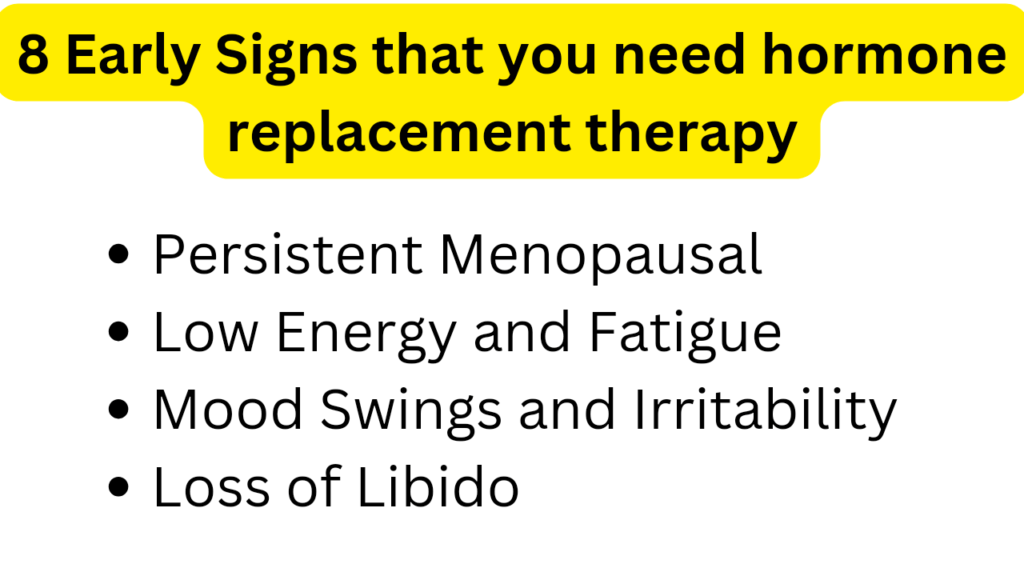Here you will learn about the “signs that you need hormone replacement therapy”.

Hormones play a vital role in regulating various bodily functions and maintaining overall health. In aged person, hormonal imbalances can occur, that leads to a range of physical and emotional symptoms.
Hormone Replacement Therapy (HRT) is a medical intervention that can help alleviate these symptoms and improve the quality of life.
This article aims to provide a comprehensive guide on the signs that may indicate a need for hormone replacement therapy.
- Persistent Menopausal Symptoms
Menopause, which usually occurs in a woman’s late 40s or early 50s, is a natural biological process.
However, the hormonal changes associated with menopause can lead to a variety of symptoms, including hot flashes, night sweats, mood swings, and vaginal dryness.
If these symptoms persist and significantly affect your daily life, HRT may be recommended.
- Low Energy and Fatigue
A drop in hormone levels, particularly in testosterone in men and estrogen in women, can lead to persistent fatigue and reduced energy levels.
If someone experiencing unexplained and ongoing fatigue, it can be a sign of a hormonal imbalance that could be addressed with HRT.
- Mood Swings and Irritability
Hormones play a crucial role in regulating mood and emotional well-being. Imbalances in hormones such as estrogen, progesterone, and testosterone can lead to mood swings, irritability, and even symptoms of depression.
In the case of emotion well-being is consistently compromised, hormone replacement therapy may help stabilize your mood.
- Loss of Libido
A diminished sex drive can be linked to hormonal imbalances, especially in testosterone levels.
This can affect both men and women. If someone experienced a significant and persistent reduction in your sexual desire, HRT can help restore a healthy sex drive.
- Sleep Disturbances
Hormonal disturbances can lead to sleep disturbance, including insomnia, frequent awakenings, and difficulty falling asleep.
Adequate sleep is crucial for overall health, and if your hormones are interfering with your sleep patterns, hormone replacement therapy may be a viable solution.
- Weight Gain and Changes in Body Composition
Hormonal imbalances can contribute to changes in body composition, such as increased fat and reduced muscle mass. These changes can be particularly frustrating for individuals who are committed to a healthy lifestyle.
Hormone replacement therapy can help rebalance hormones and facilitate weight management.
- Cognitive Decline
Hormonal fluctuations, particularly in estrogen and testosterone, can affect cognitive function. If you’ve noticed memory lapses, difficulty concentrating, or “brain fog,” hormone replacement therapy may be considered to support cognitive health.
- Osteoporosis Risk
For postmenopausal women, the drop in estrogen levels can increase the risk of osteoporosis and fractures. Hormone replacement therapy with estrogen can help maintain bone density and reduce the risk of osteoporosis.